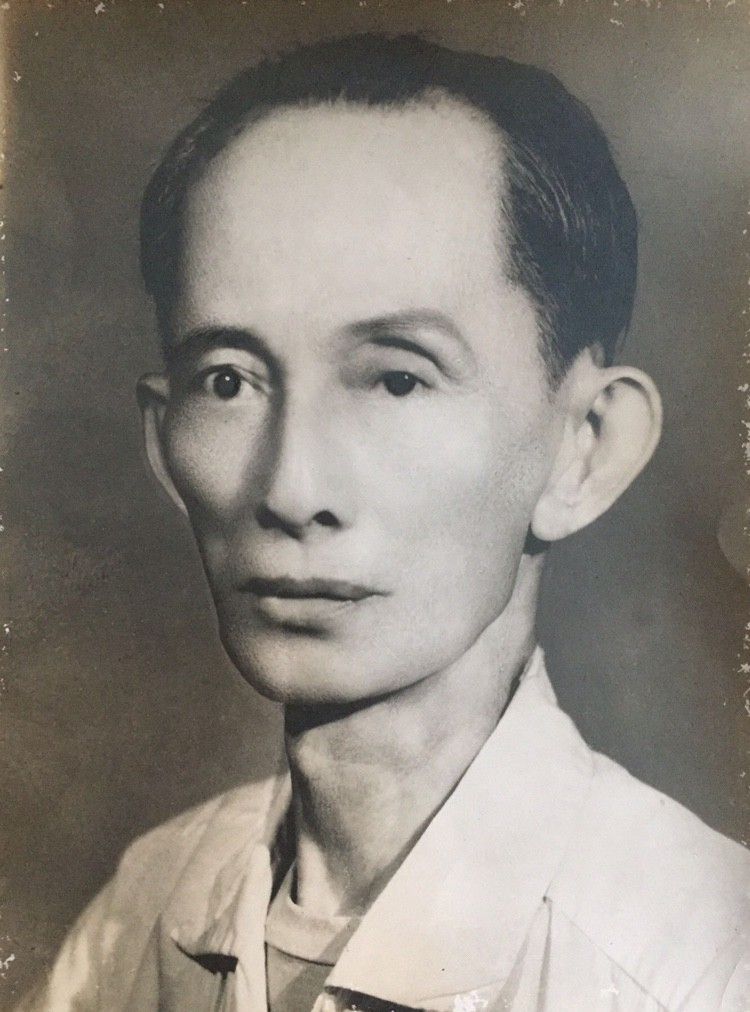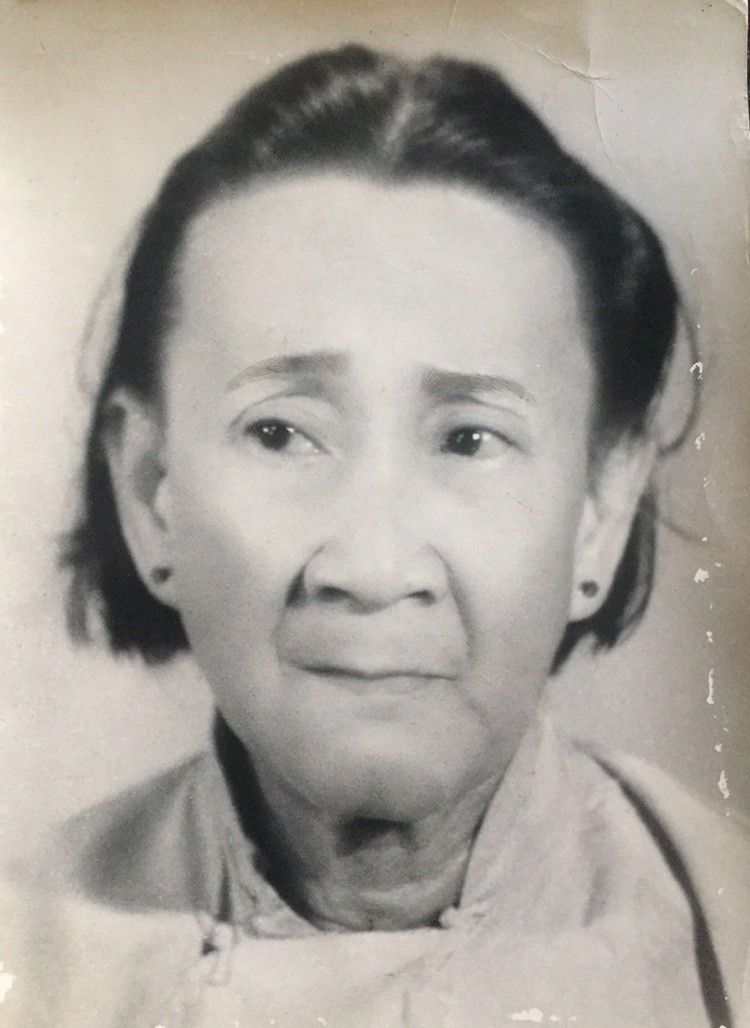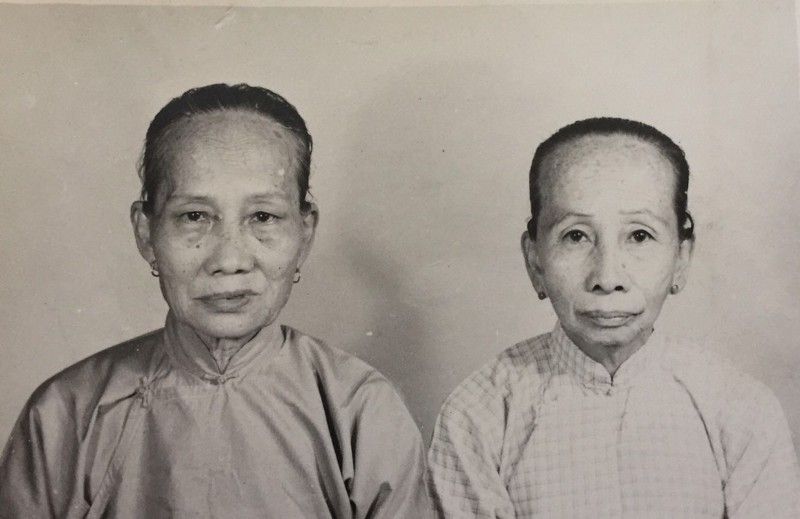
螻蟻似身心似鼠
Some memories of my grandparents
Some memories of my grandparents
May 24, 2019
It was forty years ago that my grandparents passed away, but their images are still the same to me as yesterday. After all, those are the closest memories from childhood to adolescence, but when I bring my thoughts back to the 1960s and 1970s, It was like watching a black-and-white Cantonese movie again. The characters were familiar, but the scenes were old and yellowed, the plots were overlapping, and many things had become blurry.
My grandparents fled to Vietnam from war-torn China in the 1930s. After the regime change in South Vietnam in 1975, China and Vietnam had not yet turned against each other. At that time, the Communist Party of Vietnam regime regarded Mainland China, which was also communist, as a big brother in terms of culture and ideology. I remember there was a saying at the time: , China and Vietnam are connected by mountains and rivers, and they are "comrades and brothers" who are closely related to each other. In this environment, I once asked my grandfather why they left China to come to this completely unfamiliar place with a language barrier. My grandfather's answer was because "there is no food in Tangshan and people starve to death." At that time, his mother, the great-grandmother we called "A Tai", was still alive, but because her feet were bound at a young age, every step she took as she grew up was like walking on thin ice. So how did she travel across mountains and rivers to get here? "I carried her here," my grandfather replied. In that era of war, food shortages, and the "crowding" of the Chinese people, how did a young man take his wife, some belongings, and his mother on his back, and fled thousands of miles away from the home where he grew up to live alone? What about an unfamiliar place? It’s hard for me to imagine that kind of hardship and helplessness. Later, my grandparents, like most of the fellow villagers who fled, were very lucky to settle and die of old age in this place where they had only planned to live temporarily at the beginning.
My grandfather was cautious and timid all his life. He never did evil or was greedy for petty gains. During his lifetime, he worked as a cashier in a small company. He was good at writing in big calligraphy that would impress people. He did not drink but smoked. This habit caused him to suffer from lung disease in the last days of his life. Lingering, he tossed and turned in the hospital bed and passed away in pain. The image of my grandmother only remembers her half-ricket body, and her half-deaf ears were nagging all day long. The humid weather in Vietnam caused a lot of scabies on the feet. When the itching was too severe at night, she would use fire to relieve the itching. She would use a small piece of burning paper or wood to turn back and forth on the soles of her feet, making utterances that she didn't know were painful or painful. Comfortable sound. They gave birth to a son, my father, who was probably an only child. He was doted on since he was a child. When he grew up, he lived a life of idleness, not knowing what responsibilities were, and always focusing on himself.
When my grandparents were still alive, their memories of their daily life of working from sunrise to sunrise were mediocre, but I can remember two things here: One night, my grandfather told my grandmother that there was no need to prepare dinner. Eating outside at a teahouse was the only time in my memory. The family sat outside at a big round table eating and drinking together. I still remember that when I was paying the bill, my grandfather told the boss that the price to be paid on the bill was wrong. And pointed out the total of this dish and that dish, this drink and that drink, how much do you think is too much? The boss slapped the abacus on the counter for a while, and then said to his grandfather. Apologizing and collecting the correct meal fee that my grandfather had calculated in his mind early in the morning fully demonstrated his ability as a cashier to handle money figures day and night.
Another thing I will never forget in my life: The first major thing the Vietnamese communist regime did when it unified the north and the south in 1975 was to replace the currency in circulation left over from the previous dynasty. However, the implementation of the policy was brutal and one-size-fits-all: every day No matter how many old currency assets a person in an account has, they can only exchange for a certain number of new currencies. From my memory, it seems that each person can exchange for 200 Singapore dollars. In other words, a millionaire and a person with assets only equal to 200 Singapore dollars will take home only 200 Singapore dollars, and the authorities have not explained it. After the rich man exchanged 200 yuan for new coins, the remaining old coins that had been handed over could not be exchanged for new coins until that month and year. The new legislation also bans old coins from circulating in the market with immediate effect. Of course, we did our best to keep it secret. As far as I can remember, we were only told the day before the old currency was to be exchanged for new currency that the city would be under martial law tomorrow and the government would release major news. After the news was announced the next day, the citizens were like the line in Lu Xun's poem " They were frightened like thunder in silence. A government can turn all the rich and poor people in society into equally poor people in one day. Of course, the greatest impact is on those who mainly run small businesses and have savings habits. Chinese class. Of course, our family is also enveloped in misery. My grandfather has two sisters who are a few years younger than him and live with us. We call them the third aunt and the fourth aunt. The former’s husband died not long after they got married and she has been a widow for the rest of her life. The latter has never married. Both of them are They work as domestic helpers and live frugally throughout their lives. The hard-earned money left behind is used as a "coffin book" when they die in the future. For them, the soul of the deceased can be transcended and the body can be buried after death. Go beyond the sensuality of living in the moment. The government's policy of exchanging old currency for new currency was of course a big blow to them. The coffin books they had worked hard for most of their lives turned into a few new currency. I remember that they took the old currency they had saved for decades before exchanging the currency. The grandfather, who was hugging his head and crying, and had red eyes beside him, was at a loss as well, and intermittently said words of comfort that he himself did not believe. The three old men, who were already in their sixties, could not help but burst into tears and burst into tears. That scene was unbearable for me as a teenager, and the psychological shock it caused is still strong to this day. Of course, our family was not alone in this misfortune. Most of the property of the Chinese and Vietnamese communities at that time was looted by the authorities. But the misfortune did not end here. On the contrary, two years later, the conflict between China and Vietnam triggered a border war, the anti-Chinese movement was launched, and later the Chinese fled to the angry sea regardless of life and death. Only then did we realize that this policy of exchanging old currency for new currency was a sign of misfortune. The prologue.
At this point in writing, I think of my grandparents who were displaced and left their homes due to the war, and our grandchildren risked their lives to leave their homes for the same reason. Destiny has strangely repeated its trajectory after a generation. If this is the case, The bumpy fate of the overseas Chinese in the last century can rather be attributed to the development of the local political system, which has made the Chinese a community of shared destiny with little similarities and differences. Just like the fate of the Chinese in Vietnam, Malaysia and Thailand before the fall of 1975 was relatively less bumpy. But compared to the horrific, miserable and hellish experiences of the Chinese in Indonesia in the 1960s and the Cambodian regime of China’s good friend Pol Pot in the 1970s, the experience of the Chinese in Vietnam seems not to be the worst.



I would like to write this short article in memory of my grandfather Huang Mucheng, my grandmother Chen Yuan, and the third and fourth aunts Huang of Huomen.
Like my work?
Don't forget to support or like, so I know you are with me..
Comment…